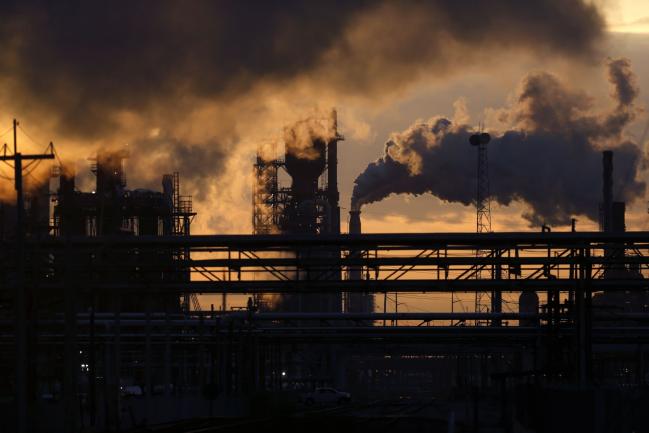This post was originally published on this site
https://i-invdn-com.akamaized.net/content/picd34a280cc08b2219e8661d12dc48b59f.jpg
(Bloomberg) — BP (LON:) Plc’s pledge to zero out all its carbon emissions by 2050 deepens the divide between major European and American oil producers on climate change, increasing the pressure for Exxon Mobil Corp (NYSE:). and Chevron Corp. (NYSE:) to do more.
The U.S. supermajors have only committed to reducing greenhouse gases from their own operations, which typically account for just 10% of fossil fuel pollution. BP on Wednesday followed Royal Dutch Shell (LON:) Plc and Equinor ASA in pledging to offset emissions from the fuels they sell to customers, representing about 90% of the total.
“If we do see capital flowing into BP, that may force the U.S. majors to rethink the speed at which they move on carbon reduction targets,” said Noah Barrett, a Denver-based energy analyst at Janus Henderson, which manages $356 billion. Still, he doesn’t see “Chevron or Exxon adopting a BP-like strategy in the near future” as they “have historically been less aggressive in their shift away from traditional oil and gas.”
Concerns about global warming are increasingly reshaping investment policies, with BlackRock Inc (NYSE:). and State Street Corp (NYSE:). becoming the latest high-profile investors to demand companies improve environmental, social and governance metrics, or ESG.
Exxon and Chevron, the West’s number one and three oil producers, say it’s not up to them to offset emissions from cars, factories and other polluters known in the industry as Scope 3. For Exxon, such emissions are the “result of choices consumers make.” Chevron says “well-designed policies and carbon pricing mechanisms” are needed.
But BP’s announcement “could be a real tipping point where the norm becomes taking responsibility” for customer emissions, said Kathy Mulvey, a campaign director at the Union of Concerned Scientists. “For a company to continue to stick their heads in the sand and refuse to take responsibility for those harmful impacts is not a sustainable business model.”
Exxon and Chevron do agree with the goals of the Paris Agreement, support a carbon tax and are committed to cleaning up emissions from their vast network of wells, refineries and pipelines. They joined the Oil and Gas Climate Initiative later than their European rivals but are still fully paid up members. They even lobbied against U.S President Donald Trump’s plan to roll back Obama-era emission standards.
The fundamental difference with European peers, however, is that neither is reducing commitment to their oil and gas business by chasing the crowd into lower-margin renewables such as wind and solar.
When asked about potentially following Shell into the power sector, Chevron CEO Mike Wirth was clear in an interview with Bloomberg News last year.
“We don’t see distinctive differentiating capabilities that would say, ‘wow we can do this better,’” he said. “And it’s inherently lower return than the other things we could invest money in.”
Chevron is investing in early-stage technologies that could help aid carbon capture and energy storage, but that’s a small fraction of its budget. The company helps customers clean up their energy usage by supplying gas for power generation that’s cleaner than coal, developing biofuels and adding renewable energy sources like wind and geothermal, it said in a statement.
Exxon CEO Darren Woods says the real answer to climate change will come through technologies that haven’t yet been invented. The company said in a statement it has invested more than $10 billion over the past 20 years in researching and developing low emissions technologies.
The oil giant is working on proprietary technologies that would reduce emissions in areas like aviation, heavy duty vehicles and industrial processes. “We can bring more value in the space where we don’t know what the solution is but we need one,” Woods said in an April interview. Exxon has pedigree in this field. It invented the lithium-ion battery in the 1970s.
This approach will likely come under attack at this year’s round of shareholder meetings in May. Both companies are being asked by Dutch activist investor group Follow This to align their strategies with the Paris Agreement. Exxon is asking the Securities and Exchange Commission to exclude that proposal from a shareholder vote, arguing it “seeks to micromanage” the company.

